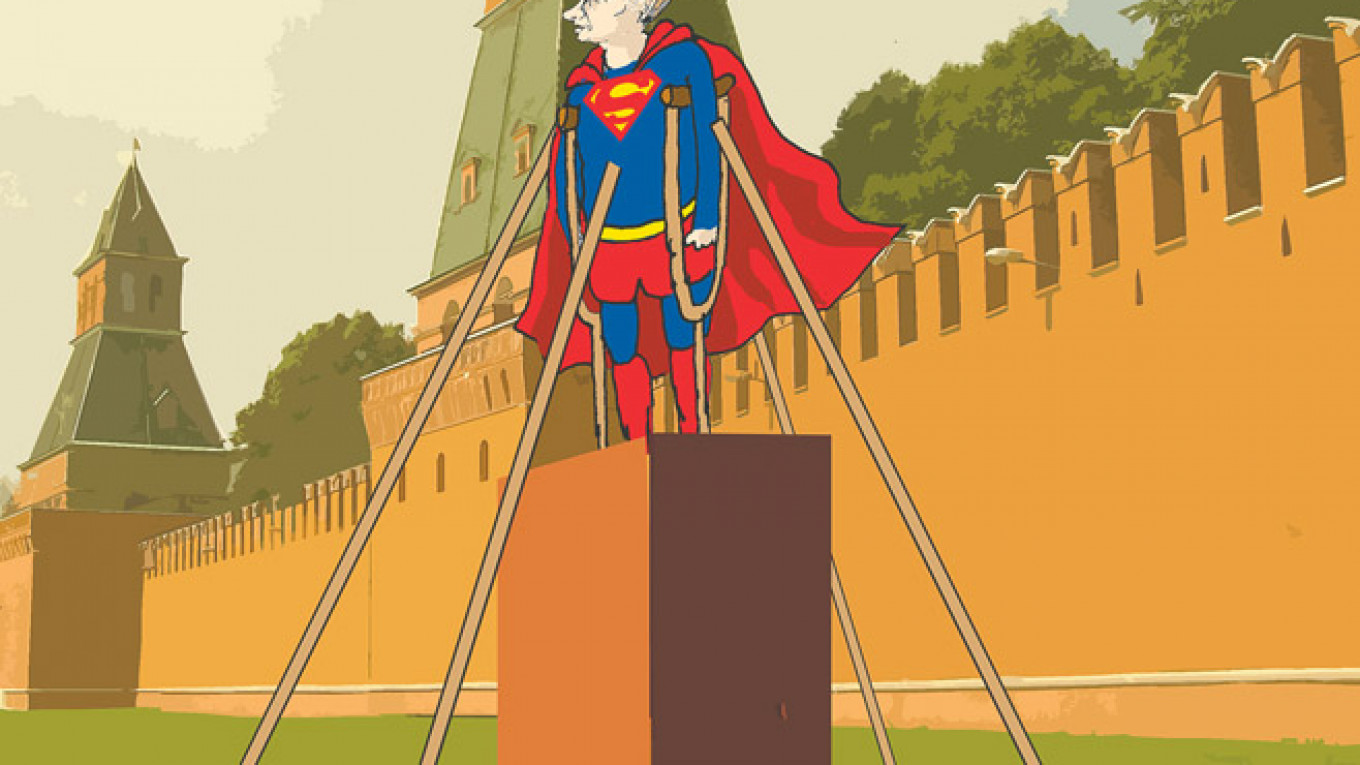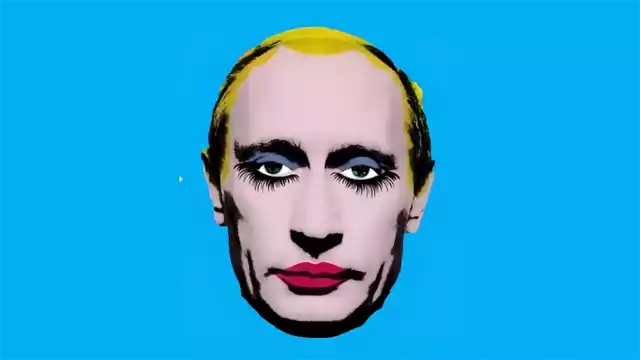It has become increasingly common to hear people — even opposition politicians — say that it is in Russia's best interests for President Vladimir Putin to remain in power as long as possible. Otherwise, they say, things could get even worse.
I agree with that argument, but with one caveat: If Putin loses power, things could get even worse for the West as well. That might sound like heresy to some, but just hear me out on this.
According to a recent Levada Center poll, Putin's approval rating has dropped slightly since the beginning of the month, probably due to the recent food imports ban. Despite this, his current approval rating of 85.5 percent is impressive by any standards.
Observers typically ascribe the astronomically high approval rating to recent events in Ukraine and the Western sanctions that act on most Russians the way a red flag acts on a bull.
That explains the surge in Putin's popularity, but it does not explain why his ratings have remained consistently high ever since he served as prime minister in the late 1990s under former President Boris Yeltsin. It is rare for any politician in any country to enjoy such support for so long.
One of the reasons for the initial rise in Putin's popularity lies in the traditional mentality of the Russian people, who tend to believe less in their own strength and more in a national hero or savior.
After a litany of disappointing Soviet leaders — such as Leonid Brezhnev, who was senile; Yury Andropov, who was only half-living; Konstantin Chernenko, who was already half-dead; Mikhail Gorbachev, who spoke well but led poorly; and power-hungry but drunken Boris Yeltsin — the Russian people hoped to finally "win the lottery" and land a leader in whom they could place their full confidence.
Most Russians were sincerely convinced that Putin was the only man capable of implementing "national projects," getting fifth- and sixth-generation combat aircraft off the drawing board and into the air, raising pensions to European levels, resolving the demographic problem, eliminating corruption, commencing the drilling of Arctic oil and so on.
In the face of such expectations, most leaders would not hold the public's trust for long. So what exactly is his secret? Contrary to what some liberal opposition leaders claim, most Russians do not support Putin out of sheer stupidity. It is just that the old set of traditional priorities remains in place in today's Russia.
During his tenure as leader, Putin has achieved a great deal that Russian citizens value. He continues to "keep a tight hold" over the country's affairs — an undeniable sign of progress in the eyes of many, given the chaos of the 1990s.
Yes, Putin represses the opposition, but many people do not consider that a major disadvantage because they see little use in the existence of opposition politicians anyway. Are the Russian people mistaken in this belief? Of course, but the blame lies with the opposition itself. For decades, the opposition has failed to connect with the majority of Russians or offer them a viable alternative course for development.
Putin also pursues a foreign policy that is independent from the West, an approach that always elicits support from the Russian people. The government is worse at meeting its social obligations, but at least it manages to maintain the minimum required to keep the public happy.
Putin is also slowly but surely restoring the condition of Russia's army, something that has always been important for patriotic citizens. The list goes on.
Of course, upon closer inspection, all of these "pros" also include "cons," but they are not very obvious to the casual observer, who also tends to overlook such problems as corruption and the bloated government bureaucracy.
But for the very same reasons and despite Putin's impressive popularity, the political barometer presently reads "cloudy." Russia now stands at a crossroads, and it faces equally strong chances of success or failure. Some form of change is now inevitable. And in Russian history, change has always been a painful process that does not necessarily lead to improvements.
This is all the more likely because, despite his long years in power, Putin has never really become the "savior" of his people. At best, he has been a nurse applying cold presses to the feverish head of the Russian state.
As before, Russia lacks effectively functioning political, social and economic systems. The country even lacks a potential successor to Putin: Nobody would claim to hold the No. 2 position in the Russian political hierarchy.
And even if such a person did come forward, there is no guarantee he would succeed Putin rather than some "dark horse" candidate hand-picked by the ruling elite. Putin himself was such a "dark horse" candidate when he replaced Yeltsin.
This accounts for the fears connected with the inevitability of Putin one day leaving the scene. That is fraught with unknown consequences for Russia and — considering Russia's geopolitical significance — the rest of the world.
Pyotr Romanov is a journalist and historian.
A Message from The Moscow Times:
Dear readers,
We are facing unprecedented challenges. Russia's Prosecutor General's Office has designated The Moscow Times as an "undesirable" organization, criminalizing our work and putting our staff at risk of prosecution. This follows our earlier unjust labeling as a "foreign agent."
These actions are direct attempts to silence independent journalism in Russia. The authorities claim our work "discredits the decisions of the Russian leadership." We see things differently: we strive to provide accurate, unbiased reporting on Russia.
We, the journalists of The Moscow Times, refuse to be silenced. But to continue our work, we need your help.
Your support, no matter how small, makes a world of difference. If you can, please support us monthly starting from just $2. It's quick to set up, and every contribution makes a significant impact.
By supporting The Moscow Times, you're defending open, independent journalism in the face of repression. Thank you for standing with us.
Remind me later.






